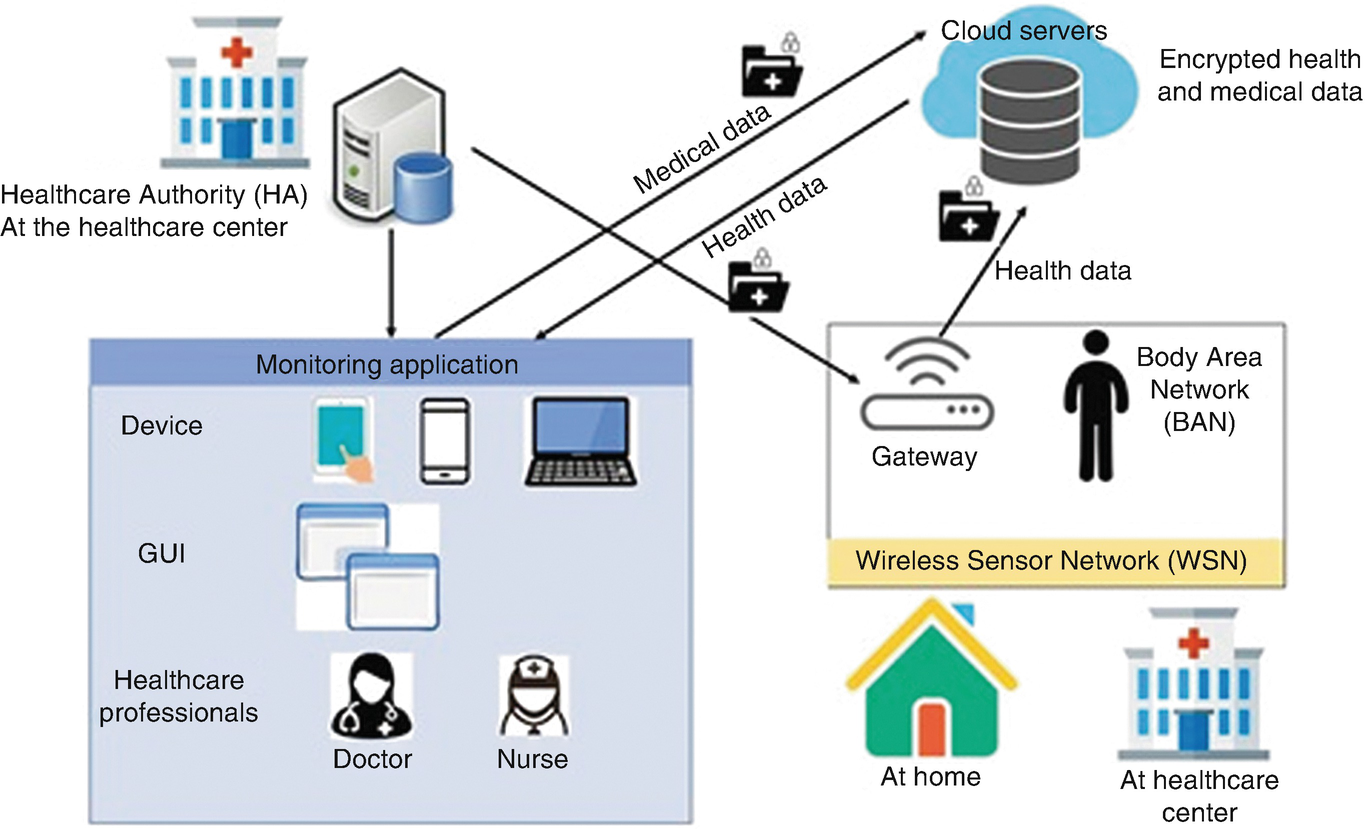Biomedical Devices Are Vulnerable To Cyberattack
In fact a recent survey showed that 62 percent of customers value cybersecurity more than ease of use in a medical device. Cyberattacks on Unmanaged Medical Devices.

Cybersecurity Technologies For The Internet Of Medical Wearable Devices Iomwd Springerlink
More collaboration is needed in order to ensure internet-connected medical devices.

Biomedical devices are vulnerable to cyberattack. Any medical device connected to the internet is at risk of a cyberattack and devices that receive and transmit data are the most vulnerable. Unfortunately many types of these devices are broadly vulnerable to attack. Make devices unusable by taking over device controls.
Investigators found that many of the devices had been infected with the Mirai malware a botnet that coordinated the attack. But one big takeaway for me is that you found that more than half of IoT devices are vulnerable to medium- or high-severity attacks making IoT. Hacked medical devices could be the next big security nightmare.
Cybersecurity researchers at Ben-Gurion University of the Negev say that medical imaging devices such as CT scans are vulnerable to cyber-threats. At least so far. Cyber-attacks on medical devices could put patients at risk.
For example in a December investigation of new generation implantable cardiac defibrillators British and Belgian. Patient care and safety data loss and damage to a healthcare. Medical Devices Vulnerable to Cyberattack T he Food and Drug Administration June 13 issued an alert and draft guidance on medical device cy-bersecurity.
Cybersecurity researchers at Ben-Gurion University say they are developing AI-driven solutions to foil hacks by making sure medical instructions match patients profile. The vulnerabilities affect 17 of the companys implantable cardiac device models and the external equipment used to communicate with them. But when cybercriminals target healthcare organizations peoples lives are put in danger.
The US Food and Drug Administration has just launched an alert on the vulnerability of medical devices to hackers attacks that can take their control from remote changing their functions with consequent malfunctioning and life threats for patients depending on them. The increased use of pacemakers and other embedded devices also leaves patients at risk with many of these devices using radio or network technology. While connectivity does increase the amount of data available to physicians.
And it believes its been able to catch cybersecurity flaws in medical devices before hackers found them. Why Medical Devices are Vulnerable to Cyberattacks. The FDA isnt aware of any reports of an unauthorized user exploiting a cybersecurity vulnerability in a medical device that is in use by a patient then-FDA Commissioner Scott Gottlieb said in a 2018 statement.
IoT security warning. An FDA warning notice was sent to medical device manufacturers hospitals medical device user facilities health care technical staff and biomedical engineers. Use them to connect to other devices on or off internal networks.
FDA recommended that device manufacturers consider ad-dressing cybersecurity measures for their products in. The agency said embedded computer systems in de-vices are vulnerable to cybersecurity breaches. Department of Homeland Security last week warned that numerous medical devices made by Medtronic are vulnerable to cyber attack.
These medical device vulnerabilities can be exploited by bad actors. The Food and Drug Administration said implanted devices which could include pacemakers or defibrillators could be connected to networks that are vulnerable to hackers. Many people assume that damage from a cyberattack is limited to their computers networks or banking systems.
Old machines and outdated software are putting medical practices at extreme risk. They found that 82 percent of healthcare organizations IoT devices have been targeted with a cyberattack within the last year compared with 80 percent of organizations overall. Inflict patient harm by modifying or deleting PHI data or by compromising the device integrity.
The healthcare industry is vulnerable to cyberattacks including ransomware malware data breaches DDoS and cryptojacking. There are currently between 10 and 15 connected devices per hospital bed in the United States many of which are vulnerable to attack. As the responsibility of risk management ultimately lies with the.

Pin By Hatice Sultanoglu On Algi Cyber Threat Remote Work Vulnerability

Keylogger Network Security Hub Network Security Networking Network And Security

Keep An Eye On Your Personal Belongings The Security Of Personal Medical Devices And Their Ecosystems Sciencedirect

A Nurse Using A Touch Screen Medical Device Stock Footage Screen Touch Nurse Medical Touch Screen Medical Nurse